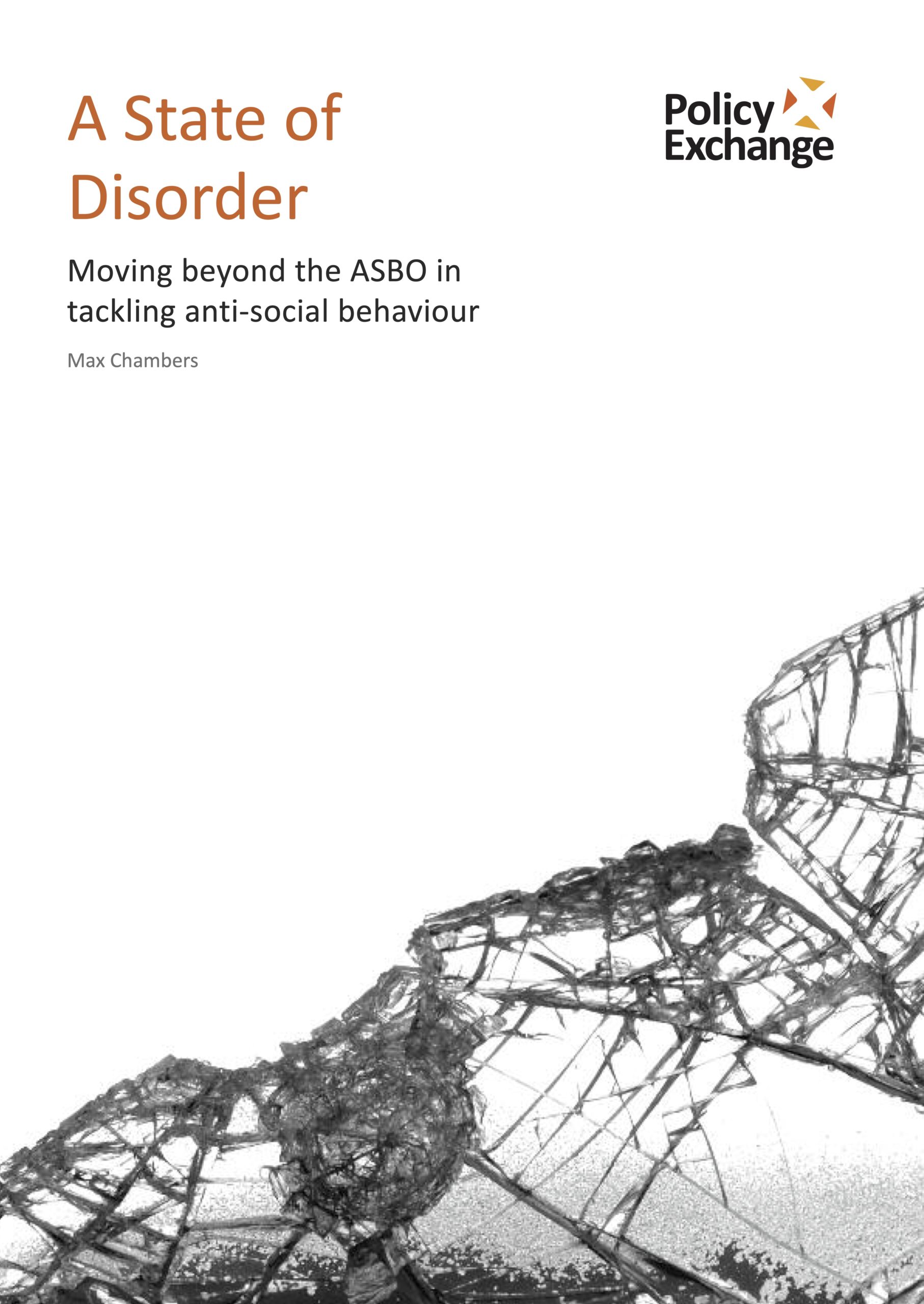
A State of Disorder: Moving beyond the ASBO in tackling anti-social behaviour
This report contends that while some limited progress has been made in tackling anti-social behaviour, there are a host of weaknesses with the Government’s approach.
The desire to demonstrate progress has resulted in significant pressure on local agencies to use more of the powers they have been given (such as the ASBO). This measure tells us little about whether problems have been solved or victims satisfied, and we do not even know how effecttive the available powers are because the Home Office has never evaluated them. These problems have been exacerbated by a lack of both local leadership and adequate multi-agency working in too many areas. Anti-social behaviour is also difficult to measure accurately and studies have shown that, as a result, the Government’s coercive central targeting regime for the police has meant that resources have been moved away from more visible elements of policing, such as dealing with anti-social behaviour.
- Making a real impact on this issue is possible, but it will require a new approach – one which:
- emphasises the importance of local leadership and self-governance;
- reinvigorates local policing through enhanced accountability and freedom from central direction;
- encourages personal and community responsibility through building social capital; and
- is based on the best available evidence about what works to reduce anti-social behaviour.
Our recommendations include introducing directly-elected police commissioners, who will transform the way anti-social behaviour is prioritised by the police and provide strategic direction to local authorities and other services. Police officers should also be freed from central direction, with a recognition that genuinely responsive policing is about mediating, problem-solving, prevention, protection and setting community standards. We also need local communities to take a stand against anti-social behaviour, so we recommend that the police should have complete discretion in deciding whether to investigate or arrest members of the public who intervene to prevent crime and anti-social behaviour. We also suggest that a cross-party commission be formed to design a National Civic Service programme, with a specific focus on preventing anti-social behaviour and providing a rite of passage for children who are making the transition to adulthood.

